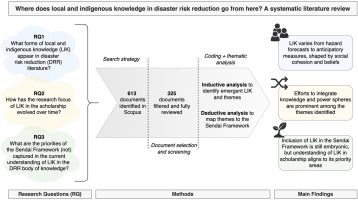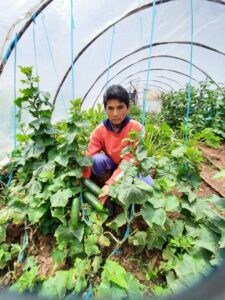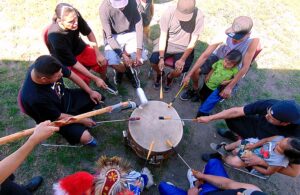In an era where modernity frequently overshadows cultural heritage, traditional knowledge serves as a vital testament to the wisdom of past generations. This document aims to explore the components of traditional knowledge, its significance, and the crucial role of oral histories in its preservation.
By examining the benefits and challenges associated with the use of oral narratives, this text underscores how communities can collaborate to address obstacles in documentation. Through relevant examples, we encourage a deeper understanding of the rich tapestry of wisdom that oral histories contribute to the fabric of cultural identity.
What Is Traditional Knowledge and Oral Tradition?
.jpg_00.jpeg)
Traditional knowledge encompasses the understandings, skills, and philosophies developed by societies that have engaged with their natural environments over extensive periods. This body of knowledge is frequently transmitted through generations, serving as a fundamental means of cultural expression and identity formation. It often includes indigenous practices, customs, and rituals that are essential to cultural preservation.
It encompasses the practices, concepts, and narratives that define communities and shape their cultural heritage, thereby contributing to sustainable practices and ecological awareness.
By integrating traditional knowledge with contemporary scientific approaches, communities can effectively preserve their cultural practices and identity while addressing the complexities of modern challenges. This integration facilitates the revival of oral tradition and the development of knowledge networks.
Why Is Traditional Knowledge and Oral Culture Important?
Traditional knowledge is instrumental in preserving cultural heritage and fostering community cohesion. It serves as a repository of lived experiences and historical narratives that shape group identities.
This knowledge promotes social cohesion and enhances community resilience by providing a shared sense of belonging and continuity. Furthermore, traditional knowledge systems are essential for addressing contemporary challenges, offering insights into sustainable practices that are rooted in local contexts, including knowledge sharing through oral tradition.
This enriches our understanding of cultural expressions and the diversity of knowledge systems. Additionally, traditional knowledge facilitates the transmission of knowledge across generations, ensuring that the wisdom of past generations informs future decisions and actions.
What Are Oral Histories and Testimonial Narratives?
Oral histories represent a valuable form of qualitative research that effectively captures the intricate tapestry of human experiences and cultural narratives through storytelling. This methodology serves as a crucial avenue for comprehending the lived realities of individuals and communities, contributing to cultural storytelling and memory preservation.
It underscores the importance of personal narratives, community voices, and collective memory, facilitating the preservation of cultural heritage and the oral legacy of traditions.
Through the engagement with oral communication, researchers can acquire a deeper understanding of the historical context and lived experiences of diverse groups, thereby enhancing our comprehension of cultural heritage and identity. Oral testimonies and narrative analysis play important roles in this process.
How Are Oral Histories and Oral Testimonies Used to Document Traditional Knowledge?
Oral histories serve as an essential instrument for documenting traditional knowledge, enabling researchers and communities to capture and preserve the intricate narratives and practices that define cultural heritage. Through ethnography and oral communication, these histories offer a rich context for understanding the transmission of knowledge across generations, thereby ensuring that valuable insights and practices are not lost over time.
By employing oral historical methods, communities can engage in collaborative documentation efforts that empower local voices and promote cultural sustainability, while simultaneously contributing to a broader understanding of historical documentation. This involvement promotes community memory and grassroots documentation.
This approach not only emphasizes the importance of community engagement but also highlights the need to foster relationships between researchers and local storytellers. Techniques such as participatory observation and community workshops facilitate an interactive exchange of knowledge, promoting a deeper connection to the narratives that are shared.
By prioritizing dialogue and mutual respect within documentation practices, the process becomes a collaborative effort rather than one of mere extraction.
Consequently, traditional knowledge is transmitted authentically and sustainably, ensuring its relevance in contemporary society while strengthening community identity and resilience.
What Are the Benefits of Using Oral Histories and Personal Narratives to Document Traditional Knowledge?
Utilizing oral histories to document traditional knowledge provides numerous advantages, including the preservation of cultural heritage and the promotion of knowledge sharing within communities.
This method fosters community resilience by empowering individuals to express their own narratives and experiences, thereby enhancing the historical significance of their cultural practices. It ensures the preservation of community narratives and cultural identity.
Furthermore, oral histories play a crucial role in identity formation, facilitating a deeper understanding of the values and beliefs that shape a community’s lived experiences and cultural expressions. This also involves engaging with history preservation and identity preservation.
Through engagement in this participatory research, communities can ensure that their traditional knowledge is not only documented but also celebrated and revitalized.
1. Preserving Cultural Heritage and Oral Tradition
Preserving cultural heritage through oral histories enables communities to protect their unique narratives, traditions, and practices that define their identity and societal values. This process not only captures the essence of lived experiences but also fosters a sense of belonging and continuity among community members, thereby reinforcing their collective memory.
By employing effective storytelling techniques, oral histories serve as a valuable medium for transmitting knowledge systems that have been passed down through generations.
Through dynamic storytelling, these narratives animate past experiences, illustrating the values and beliefs that are central to a community’s identity. By engaging listeners of all ages, oral histories promote intergenerational dialogue, ensuring that crucial knowledge is not only retained but also adapted to contemporary contexts.
This practice give the power tos communities to address challenges while remaining grounded in their historical foundations, ultimately enriching their cultural fabric and enhancing resilience against the erosion of traditions in an increasingly changing world.
2. Providing First-hand Accounts and Testimonies
.jpg_01.jpeg)
Oral histories provide invaluable first-hand accounts of lived experiences, offering unique insights into the daily lives, challenges, and triumphs of individuals within a community. These qualitative narratives enhance our understanding of historical contexts and social practices while amplifying community voices that may have been overlooked in traditional historical documentation.
By prioritizing personal perspectives, oral histories illuminate the complexities of identity formation and cultural memory.
The significance of these accounts lies not only in the factual content they present but also in the emotions and experiences they convey, thereby creating a richer tapestry of the human experience. They serve as essential connections to the past, revealing how individual narratives intertwine with collective histories. Oral testimony and memory work are critical in this context.
Through these shared stories, communities can cultivate a sense of belonging and continuity, enabling future generations to learn from their predecessors.
Moreover, oral histories challenge dominant narratives by providing a platform for marginalized voices, ensuring a more inclusive representation of history that values diverse perspectives.
3. Fostering Community Involvement and Engagement
Fostering community involvement through oral histories encourages active participation in the documentation process, thereby creating a sense of ownership and pride in cultural practices. This participatory research approach promotes social cohesion and collective memory, enabling communities to share and celebrate their unique heritage.
By engaging in knowledge sharing, individuals can contribute to the sustainability of their cultural narratives, ensuring these narratives are honored and preserved for future generations.
The act of recording and sharing oral histories invites diverse voices to participate, fostering an inclusive environment where every story holds significance. Such collaborative efforts not only enrich the historical tapestry of the community but also strengthen interpersonal bonds among its members.
As participating individuals collaborate to uncover and narrate their shared experiences, they cultivate a deeper understanding of one another, thereby reinforcing social ties. These projects can serve as a foundation for cultural sustainability, promoting traditions that are vital to the identity of the community and ensuring that valuable knowledge is transmitted to younger generations, thus creating a legacy of appreciation and cultural pride. Participatory storytelling and intergenerational knowledge are key components of this process.
What Are the Challenges of Using Oral Histories and Traditional Storytelling to Document Traditional Knowledge?
Oral histories serve as a significant tool for documenting traditional knowledge; however, researchers and communities encounter several challenges that must be addressed.
These include issues of subjectivity and potential biases present in the collected narratives. Furthermore, language barriers can complicate the documentation process, restricting accessibility to specific demographics and impeding the preservation of diverse cultural expressions.
Such challenges may affect the historical authenticity of oral accounts, necessitating careful methodological considerations to uphold the integrity and accuracy of the documentation.
1. Subjectivity and Bias
Subjectivity and bias in oral histories can significantly challenge the reliability and validity of historical documentation, as personal perspectives may shape historical narratives and oral accounts in ways that do not accurately reflect broader community experiences.
This inherent subjectivity is a fundamental aspect of qualitative research; however, it necessitates careful attention to ensure a balanced representation of diverse voices and experiences. Researchers must remain cognizant of their influence on the documentation process and strive to mitigate biases wherever possible, especially in the context of cultural heritage and ethnography.
Employing techniques such as triangulation, which involves the use of multiple sources or perspectives to corroborate information, can help minimize the impact of personal bias. Adopting a reflexive approach enables historians to critically examine their own positionality and assumptions throughout the research process, thereby enhancing the collection of oral testimony and testimonial narratives.
Integrating diverse viewpoints, particularly those of marginalized voices, enhances the richness of the narratives and leads to a more nuanced understanding of historical events. Furthermore, digital archiving offers an opportunity to capture oral histories in their entirety, preserving the context and subtleties that may otherwise be overlooked in traditional documentation methods, thus contributing to knowledge preservation and archival research.
2. Language Barriers
Language barriers significantly affect the accessibility and effectiveness of oral histories, as they can restrict the participation of individuals from diverse linguistic backgrounds. Such limitations can impair the documentation practices essential for cultural transmission and knowledge sharing, resulting in valuable narratives and local histories remaining unheard or misinterpreted.
To address these barriers, it is imperative for researchers to consider employing translators or utilizing technology to facilitate communication, thereby ensuring that a comprehensive range of voices is represented in the oral history process.
The reliance on specific languages often leads to the erasure of unique dialects and cultural nuances that are integral to traditional knowledge and ethnolinguistics. To cultivate a more inclusive approach, integrating community members as co-researchers can enhance authenticity and foster trust.
Additionally, employing multimedia formats, such as video or audio recordings supplemented with subtitles, can improve comprehension and expand outreach.
By prioritizing these solutions, it becomes feasible to create a richer tapestry of collective wisdom, ensuring the preservation of cultural legacies for future generations while honoring their diverse origins.
3. Accessibility and Preservation
Ensuring the accessibility and preservation of oral histories is essential for maintaining historical records and oral archives; however, various factors can complicate these efforts. Limited resources, technological disparities, and insufficient community involvement can significantly hinder both the collection and preservation processes of historical narratives and memory work.
Many communities encounter unique challenges, such as language barriers and social stigmas, which can further obstruct their ability to share and document their narratives. The importance of oral archives cannot be overstated, as they function not only as repositories of cultural identity but also as crucial links to understanding societal shifts and historical contexts.
Engaging local populations in these initiatives is vital, as it fosters a sense of ownership and encourages diverse voices to enrich the narrative landscape. Ultimately, the preservation of these invaluable oral histories ensures that future generations can access and connect with their community’s heritage, lessons, and struggles, thereby strengthening cultural identity and community memory.
How Can These Challenges Be Overcome?
.jpg_10.jpeg)
Addressing the challenges associated with utilizing oral histories for the documentation of traditional knowledge necessitates a comprehensive approach that emphasizes community engagement and the integration of technology, along with knowledge frameworks and cultural storytelling techniques.
By promoting collaborative documentation practices, researchers can leverage the collective strengths of the community, thereby ensuring a more thorough representation of cultural narratives.
Employing participatory research methods can significantly enhance the inclusivity of the oral history process, enabling a broader range of voices and experiences to be effectively captured and disseminated.
1. Working with Local Communities
Collaborating with local communities is essential for the success of oral history projects, as it cultivates a sense of ownership and engagement in the documentation process. By involving community members in participatory research, researchers can ensure that the narratives collected accurately reflect the community’s diverse experiences and cultural expressions.
This collaborative approach not only enhances the authenticity of the oral histories but also contributes to cultural sustainability by give the power toing communities to share their stories.
Engaging local communities allows for a more comprehensive representation of voices, capturing nuanced perspectives that may be overlooked in traditional research frameworks. By establishing trust and fostering ongoing relationships, oral history projects can create a space for dialogue and reflection, where community members feel valued and heard.
This engagement can lead to a revitalization of local traditions and narratives, reinforcing the community’s identity and continuity. Ultimately, such partnerships yield richer data while cultivating a sense of pride and responsibility among participants, ensuring that their histories are preserved for future generations.
2. Using Multiple Sources and Perspectives
Utilizing multiple sources and perspectives is essential for enhancing the oral history documentation process, as it facilitates a more comprehensive understanding of cultural narratives. By integrating insights from various community members and historical records, researchers can effectively mitigate the bias and subjectivity that often accompany individual accounts.
This multifaceted approach not only improves the quality of qualitative research but also ensures that the historical documentation accurately reflects the complexity and diversity of lived experiences.
This strategy cultivates a richer tapestry of storytelling while enabling the inclusion of marginalized voices that might otherwise remain unheard. When researchers synthesize different viewpoints, they create a dialogue that transcends singular narratives, thereby facilitating a deeper connection to the past.
Analyzing contrasting accounts can illuminate underlying social dynamics and power structures, which are crucial for comprehending historical contexts. By prioritizing this inclusive methodology, the relevance and authenticity of oral history are significantly enhanced, ultimately contributing to a more informed and empathetic society.
3. Utilizing Technology
The utilization of technology in the documentation of oral histories can significantly enhance practices related to accessibility and preservation of cultural narratives. Digital tools allow researchers to record, archive, and share oral histories more efficiently, facilitating community engagement and making these valuable resources readily accessible for future generations.
Furthermore, technology serves to bridge language barriers and promote effective communication, thereby ensuring a broader representation of voices within documentation efforts.
The integration of multimedia platforms facilitates the inclusion of audio, video, and interactive elements, thereby enriching the storytelling experience. Cloud-based storage solutions offer a secure environment for preserving these narratives, safeguarding them from physical deterioration and ensuring their availability to diverse global audiences.
By leveraging social media and online archives, communities can actively promote their oral histories, fostering a sense of pride and engagement among their members. These technological tools enhance the visibility of underrepresented cultures and encourage collaborative projects that give the power to individuals to share their stories, ultimately contributing to a more comprehensive historical record.
What Are Some Examples of Oral Histories Documenting Traditional Knowledge?
Numerous examples of oral histories exist that document traditional knowledge across various cultures, illustrating the richness and diversity of cultural heritage.
Such projects underscore the significance of capturing community narratives and preserving local histories, thereby ensuring that the wisdom and experiences of past generations are honored and transmitted to future generations.
By examining these documentation initiatives, one can gain insights into the methodologies employed and the impact of oral histories on cultural sustainability.
1. Indigenous Oral Histories Project
The Indigenous Oral Histories Project represents a significant initiative dedicated to documenting the traditional knowledge and cultural heritage of Indigenous peoples through oral narratives. By actively engaging with community members, this project underscores the importance of preserving their unique stories, customs, and practices, thereby contributing to a more profound understanding of Indigenous culture and identity. This project highlights the relevance of oral tradition in preserving historical significance and cultural richness.
This collaborative documentation effort yields valuable insights, ensuring that the voices of Indigenous communities are both amplified and honored. Through participatory storytelling and narrative analysis, the project fosters a deeper appreciation of lived experiences and oral tradition revival.
Moreover, this initiative not only safeguards critical historical accounts but also promotes intergenerational dialogue, enabling younger generations to connect with their cultural roots. By systematically archiving these oral histories and oral tradition, the project plays a pivotal role in countering the erasure of Indigenous narratives from mainstream discourse and promoting cultural preservation.
It also encourages the revitalization of traditional languages and practices, supporting cultural heritage and providing a platform for cultural exchange and education.
Ultimately, the objectives of the Indigenous Oral Histories Project center on creating a living archive that reflects the resilience, diversity, and richness of Indigenous cultures, ensuring that their heritage and traditional knowledge continue to thrive for future generations.
2. Native Voices: Native Peoples’ Concepts of Health and Illness
.jpg_11.jpeg)
The Native Voices project is dedicated to documenting the traditional knowledge and perspectives of Native peoples regarding health and illness, employing oral histories to capture their unique understandings and practices. This initiative underscores the significance of storytelling and oral communication in conveying cultural beliefs and values associated with health, thereby facilitating the preservation of Indigenous knowledge systems.
By systematically documenting these oral narratives through interviews and oral testimony, the project contributes to the broader discourse on health and healing within Native communities.
Through meticulous collection and dissemination of these stories and personal narratives, the initiative aims to bridge the divide between Indigenous and Western health paradigms, promoting a deeper understanding of how these interconnected perspectives can enhance overall well-being.
By highlighting the importance of community-based knowledge, the project strives to give the power to Native individuals and families, ensuring that their cultural practices, customs, and rituals surrounding health are not only recognized but also celebrated.
Ultimately, the insights derived from these narratives play a critical role in informing public health policies and practices, advocating for a more inclusive approach to healthcare that respects and integrates Indigenous wisdom and cultural storytelling.
3. Traditional Knowledge in the Pacific Northwest
The Traditional Knowledge in the Pacific Northwest project serves to document the rich cultural heritage and oral histories of Indigenous communities within the region, with a focus on their traditional practices and their relationship with the land. This project involves ethnolinguistics and anthropology research to ensure comprehensive cultural documentation.
By collecting community narratives and oral accounts, this initiative aims to preserve valuable insights into ecological knowledge, cultural expressions, and identity formation. The resulting oral histories contribute to a more profound understanding of the region’s history and underscore the importance of maintaining traditional knowledge for future generations.
This project is instrumental in fostering intergenerational dialogue and knowledge transmission, enabling younger community members to connect with the wisdom and experiences of their ancestors. Through workshops and community gatherings, it encourages collaboration among diverse voices, ensuring that a variety of perspectives are incorporated into the narrative.
The emphasis on storytelling techniques and cultural storytelling not only enhances cultural pride but also reinforces social ties within the community.
Furthermore, by highlighting practices such as sustainable resource management and oral tradition revival, the project underscores the significance of traditional knowledge in addressing contemporary environmental challenges. Ultimately, it aspires to create a living archive that empowers Indigenous voices, supporting their ongoing efforts to reclaim and revitalize their heritage through oral history projects.
Frequently Asked Questions
What is the role of oral histories in documenting traditional knowledge?
The role of oral histories in documenting traditional knowledge is to preserve and pass down valuable information and practices from one generation to the next through spoken accounts. It allows for the documentation of cultural beliefs, customs, and practices that may not have been recorded in written form, contributing to the preservation of community memory and historical consciousness.
How do oral histories contribute to the understanding of traditional knowledge?
Oral histories provide firsthand accounts and perspectives on traditional knowledge, which can give a deeper and more personal understanding of cultural practices and beliefs. They also allow for the preservation of traditional languages, dialects, and folklore studies.
What are some challenges in using oral histories to document traditional knowledge?
Some challenges in using oral histories to document traditional knowledge include potential biases or variations in the retelling of stories, subjective interpretations, as well as the risk of losing valuable information as oral traditions are passed down orally. There may also be difficulties in verifying the accuracy of information and ensuring historical validation.
Why is it important to document traditional knowledge through oral histories?
Documenting traditional knowledge through oral histories helps to ensure the preservation and continuation of cultural practices and beliefs. It also allows for the sharing of knowledge with future generations and can help to maintain cultural identity and identity preservation.
Can oral histories be used as a reliable source of information for traditional knowledge?
Yes, oral histories can be a valuable and reliable source of information for traditional knowledge. However, it is important to consider potential variations or biases in the retelling of stories, and to verify information with other sources if possible to strengthen the community knowledge networks.
How can oral histories be used in conjunction with other forms of documentation for traditional knowledge?
Oral histories can be used in conjunction with other forms of documentation, such as written records, artifacts, and folklore, to provide a more comprehensive understanding of traditional knowledge. Combining different sources of information can also help to validate and verify information through historical documentation and archival research.

My name is Bruno, I have been a writer for 5 years and I work with website creation. My goal is to provide true information to readers. In fact, on this site I write about cultures and traditions, which I have been passionate about since childhood.




